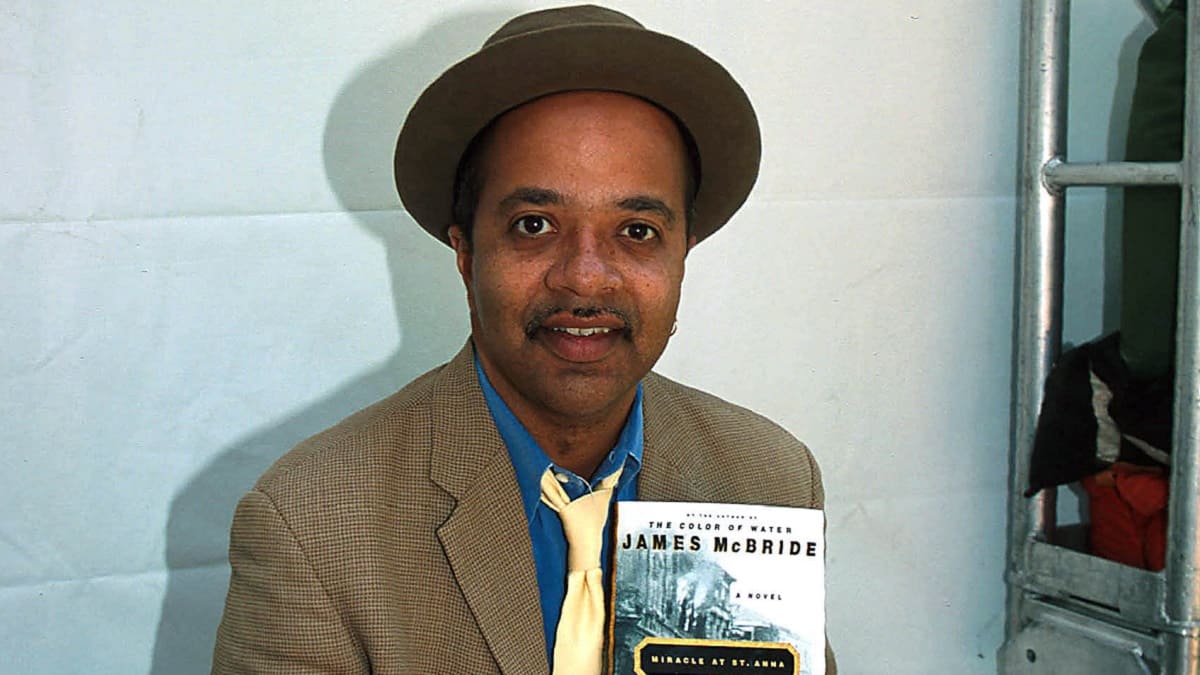
James McBride once again pays tribute to his mother in his new novel, Deacon King Kong. The book is set in 1969 in a Brooklyn housing project similar to the real-life Red Hook, which is the housing project where James McBride and his siblings were raised by their Jewish mother, Ruth McBride.
McBride is known for his 1995 memoir, The Color of Water: A Black Man’s Tribute to His White Mother.
His new 370-page novel has been described as a “feverish love letter to New York.”
Deacon King Kong follows 71-year-old Sportcoat
McBride’s Deacon King Kong follows 71-year-old Sportcoat, a church deacon in the Cause Houses projects in south Brooklyn.
Cause Houses projects is an ethnically diverse community undergoing rapid change in an era of increasing crime and shifting cultural mores and values. It follows the complexly intertwining lives of ordinary folk, mobsters and criminals, and police officers.
Sportcoat’s life had been on a downward spiral since his wife died and one day while drunk, he walked to the Cause Houses plaza and opened fire on Deems Clemens, a teenager known in the community as a drug dealer.
Strangely, Sportcoat had no memory of shooting Deems afterward but Deems sought revenge. However, Deems’ hitmen missed their target repeatedly due to fortuitous combinations of chance circumstances and events.
McBride focuses on the common humanity that binds
Deacon King Kong is a humourous work that also succeeds in addressing the serious themes of grief, poverty, gun violence, drugs, and crime
He told NPR that the goal of his story was to demonstrate the common humanity that binds members of a community.
“I’ve always felt I always defined my life, tried to dictate my life, by the fact that I believe we have more in common than we are different. At the bottom, in this book and in this community, people generally love each other.”
The novel is set in a Brooklyn housing project
James McBride grew up in a housing project in Red Hook, Brooklyn. In his 1995 memoir, The Color of Water: A Black Man’s Tribute to His White Mother, McBride recalled life in Red Hook after his African-American father, Rev. Andrew D. McBride, died.
McBride’s father died in 1957, at the age of 45, before James was born, leaving Ruth McBride, a white woman of Jewish descent, to raise her children alone.
Ruth McBride was a Jewish immigrant from Poland. She was the daughter of an Orthodox rabbi and converted to Christianity and married McBride’s African-Amerian father. She died in January 2010 at the age of 88.
James McBride described his mother’s circumstances as being unique because she was a white woman raising black children. But, fortunately, the community was supportive.
“The kindest people in her life were African American,” he told NPR.
He said his mother loved Red Hook because the people were so kind and she never forgot it. She also made sure that her children also never forgot the kindness.
He recalled experiencing a little confusion over the fact that he was black and his mother was white. He also recalled the awkwardness when he attempted to ask his mother about it.
McBride thought his mother felt they had more pressing issues to deal with as a poor family and he had to learn to fend for himself early in life.
He received a good education in a public school and recalled that most of his teachers were good people.
One of the characters in Deacon King Kong is Officer Potts Mullen, a white man that McBride depicted as a good person because he believed the narrative which demonizes police officers was dangerous. He said he preferred to be positive because most cops were good people but they were not well paid and have to work under very difficult conditions.
“I don’t put the cloak of evil on policemen,” he told NPR. “You have to emphasize the positive, otherwise, why write about people at all?”